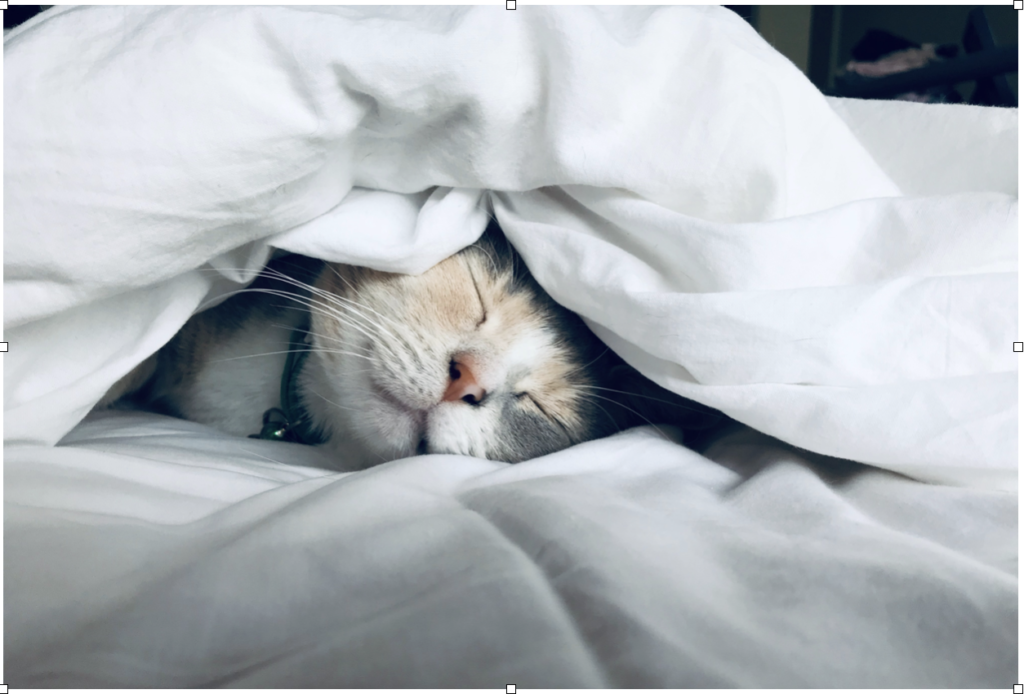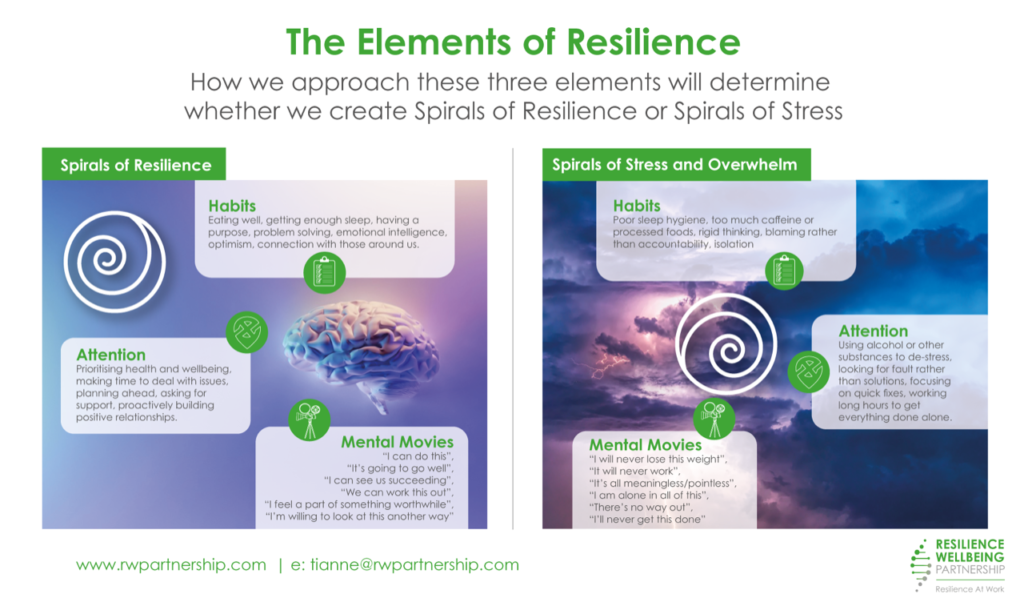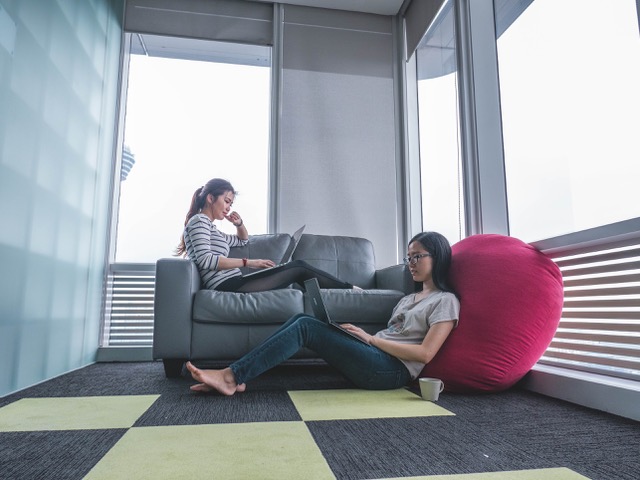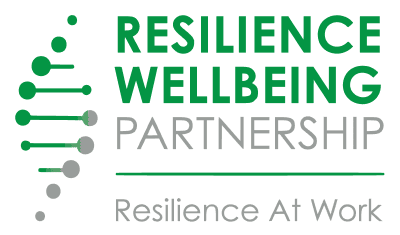Health and Sleep – Your First Domain of Resilience

How well we cope with stress – also known as how resilient we are – hugely depends on our physical health. And in turn, our physical healthhugely depends on the quality of our sleep.
If you’ve been following our recent blogs, you will know we’ve been getting ready to introduce you to each of The Six Domains of Resilience in more detail, and in this article, we focus on the first: Health.
Why do we put health first?
Health is number one for a reason: without taking care of ourselves physically, the efforts we make in the other 5 domains will have less impact on our resilience. Good health means being careful about what we consume, but it also means allowing our bodies to fully rest, renew and replenish. This is a long-winded way of saying sleep is precious and absolutely crucial if we are to feel good and to be at our best!
The picture for leaders and managers
Leaders and managers can have a particularly challenging time with sleep, however, the guidance contained here is equally useful to the people you manage in your teams.
Research and anecdotal evidence suggest the picture is changing, especially post-pandemic as people begin to prioritise their wellbeing and companies continue to realise that a healthy workforce is a more productive and happy one.
If this is an area of resilience you find a challenge, please keep reading as we are about to share expert tips and guidance from our in-house sleep consultant, Dr Sian Rowsell, on this hugely important topic.
Leaders and managers who struggle with sleep
Dr Sian says: “A big issue for leaders and managers regarding sleep is that they are dealing with high levels of stress and may well feel overloaded. This may result in struggling to get off to sleep as their mind keeps churning through all the things that need doing or that they need to remember. Or they may find themselves waking in the night and being unable to get back to sleep, waking ‘too early’ in the mornings or being restless all night and not feeling refreshed in the morning.”
The downward spiral
Leaders and managers have told us that difficulties with sleep can then lead to a downward spiral of trying to counteract the sleep deprivation with caffeine and/or craving fatty foods, using alcohol or other prescription drugs to try to fall asleep faster, and feeling too tired to adopt sleep-promoting habits such as regular exercise – all of which have a detrimental effect on the quality or quantity of sleep.
How you can change the downward spiral
The good news is that there is so much you can do to begin to reverse this cycle. Just a few small lifestyle tweaks can help you get back on track.
Dr Sian has outlined an evening Sleep Hygiene routine that is easy to implement, nurturing and enjoyable. She has also provided some troubleshooting tips for you to try for those night’s when nothing seems to work!
2 hours before bedtime
- 2 hours before you want to go to sleep, dim the lights in the room that you’re in, remembering where else the light comes from – possibly your TV or other electronic devices.
- You might want to put them in night-time mode or even wear sunglasses to watch TV in the evening to reduce the light coming into your vision.
1 hour before bedtime
- Then do something enjoyable. So, you may want to read a book, watch some TV, go for a walk, have a shower, have a bath, have a foot bath, do some meditation, do some deep breathing, whatever works for you. Just be wary of reading or watching anything that creates stress or adrenaline or is tempting to ‘binge watch!’
- Beware of checking your email or your social media accounts “quickly” before you go to bed just in case something’s come in…. because something will always have come in!
- If you do happen to check your emails, you’ve got 2 choices: either you deal with it straight away and potentially undo all of your wind-down routine, or you park it till the morning, in which case you may stay up all night ruminating over what’s in that email. If this happens… check out the ’15 minutes before bedtime’ guidance below and add the item to your list!
15 minutes before bedtime
- Write down your plan for tomorrow or anything that you need to remember (including anything that’s come in from the point above). Really go to town with this list and get everything out of your head and onto paper, no matter how trivial it might seem.
- If you’re using your phone as an alarm, put it in ‘do not disturb’ or aeroplane mode. You definitely don’t need to hear notifications from your colleagues in different time zones at 3 o’clock in the morning!
- Get the room dark and make sure the temperature is just right for you, ideally on the cooler side. Switch off any remaining lights and enjoy the sensation of sinking into the mattress.
If none of this works!
If you’ve tried the tips, but you’re still lying in bed awake and not able to sleep then Dr Sian says:
“Get up, go somewhere else and do something else until you feel sleepy. You might want to go downstairs or into another room. I suggest you get up, take 5 minutes, get a piece of paper and a pen, and write everything that your brain is desperately trying to remember for you. Get that onto the paper. Your brain will then be able to park it, relax, and hopefully, you’ll be able to get back to sleep. If you need to, read a book or sit and look at the night sky for a while until you’re ready to go back to bed.” At RWP, we are big advocates of controlled relaxed breathing plus meditation to add to Dr Sian’s list.
What you really want is for your brain to associate bed with sleep – and not associate your bed with ‘oh yes, this is the place where I worry about what I’ve got to do tomorrow.’
Another troubleshooting suggestion… Some people – even though they don’t want to wake up until 6 or 7 in the morning – regularly wake up between 3am and 4 am and then they lie awake unable to go back to sleep. There are some simple reasons that may be causing this: it may be the sunlight coming in, or it can be to do with the fact that our cortisol levels naturally start to rise around this time. If we went to bed with high levels of this hormone, the natural increase on top of existing levels can bring us into wakefulness.
Does this sound like you?
If this might be your issue, then it’s a good time to look at how to reduce your stress levels, how to bring those cortisol levels down, because that might be what’s making you wake up early in the morning.
A good way to immediately reduce stress and calm your nervous system is to try one of our closed-eye exercises. You can find them on this link.
In summary
Having high levels of resilience can in turn protect your health, and sorting your sleep hygiene is fundamental to your overall wellbeing. For more information about Sian, you can check out her profile here.
Will you be trying these Sleep Hygiene tips? We’d love to hear from you to learn how you got on! Email us at [email protected]
Thanks for reading… and sleep well 🙂
More from the Resilience blog!
Next up: watch out for our Health blog part two, where we will look in more depth at ‘What we consume’ and how this impacts on resilience levels. In the meantime. check out our recent blogs for inspiration and guidance on all things resilience and wellbeing!
Photo credit
Thanks to Kate Stone Matheson on Unsplash for the photo!
#resilience #wellbeing #sleephygiene #resiliencecoach #wellbeingcoach #resilienceatwork #sleep #sixdomainsofresilience





